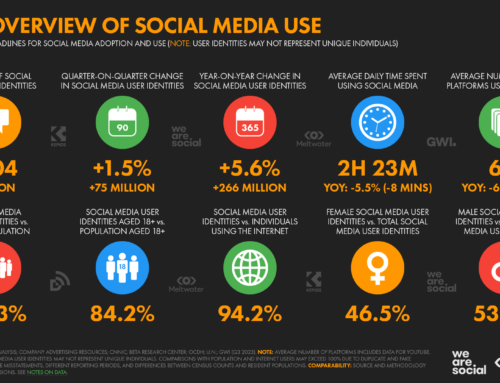 Nothing seems to elicit deeper sighs from the small nonprofits I talk to these days then how to best use social media. They know they need to “be there” and they understand the basics. But they are often troubled by the lack of strategy, and the lack of control. What staff, volunteers, and clients might say about the nonprofit on their own personal profiles (let alone the nonprofit’s official page) seems to be a particularly troublesome question.
Nothing seems to elicit deeper sighs from the small nonprofits I talk to these days then how to best use social media. They know they need to “be there” and they understand the basics. But they are often troubled by the lack of strategy, and the lack of control. What staff, volunteers, and clients might say about the nonprofit on their own personal profiles (let alone the nonprofit’s official page) seems to be a particularly troublesome question.
To deal with this fear in particular, I’m sharing a few tips below. Our next two Nonprofit Marketing Guide webinars will also help: Social Media Fear Factor: Getting Over What’s Holding You Back on Wednesday (02/16/11) and Creating a Social Media Policy for Your Nonprofit next Thursday (02/24/11).
The worry goes something like this: We are afraid of what people associated with us (staff, volunteers, clients) will say on their own profiles. What if they get the facts wrong, or share something inappropriate? What if they make us look bad?
Here what I recommend . . .
First, talk openly and honestly about your concerns as a staff. Share very specific examples of what you think is good and bad, whether real or worst-case-scenario. Simply airing some of these worries and having some devil’s advocate conversations about what might happen and what’s an appropriate response will help you see where you have some agreement and where you need to talk further.
Second, talk about “personal” versus “private.” If there are taboo topics or legal privacy issues, spell that out very clearly for people. Remember, “personal” and “private” are not the same thing anymore, and your age and experience with social media are likely to have a lot of impact on how you feel about those differences. Don’t assume that everyone shares the same level of comfort about sharing personal information, and don’t force your personal definition of “private” on others without being very specific about what you mean. It’s important to embrace a personal approach to social media, while protecting privacy.
Third, sketch out a social media policy. I advocate finding the balance between responsibility as an employee/volunteer and freedom as an individual. During the webinar next week, I’ll give you examples of very restrictive policies (“talk about this and you are fired”) and more lenient guidance (“Here’s what we prefer you do.”) Also keep in mind that the law on what you can expect of your employees is still lagging behind the technology.
Just last week the National Labor Relations Board settled a case with a company that had fired an employee for complaining online about the company and her boss. The NLRB ruled that employee’s negative comments were protected speech under federal labor laws. Under the settlement, the company is changing its blogging and Internet policy, which had barred workers from disparaging the company or its supervisors. The company also will revise another policy that prohibited employees from depicting the company in any way over the Internet without permission.
I suspect a lot of organizations will need to amend their restrictive social media policies after this case. There also seem to be dozens of cases of teachers being fired for Facebook posts of all kinds. As those lawsuits are settled, we’ll get more guidance.
Finally, remember that you can’t control others, but you can control your response. While you can do your best to coach people to say and do as you’d like, ultimately you don’t control anyone. What you do control is your response. So if you are really worried, spend some time coming up with your responses to the most likely inappropriate or unfavorable comments others would make.
The reality is that most of what you’ll find online about nonprofits is positive or neutral. Investing more time in how to encourage those kinds of comments will ultimately be more worthwhile for your nonprofit. But if you need to get over this fear first, try these steps. If you want more help, join us for the webinars.






